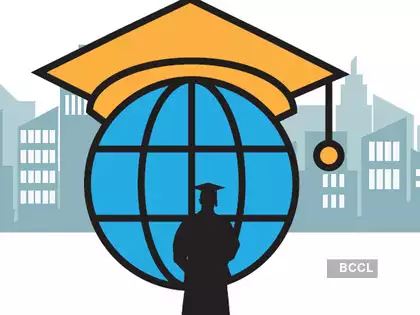What is the Process of Higher Study in India?
India has both private and public universities in India, in terms of institutions. While private universities receive funding and management from the private sector, public universities are supported and managed by the government. As some of the top universities in the nation, the Indian Establishments of Technology (IITs) and the Indian Institutes of Management (IIMs) are examples of institutions of national significance.
With a mixture of private and public institutions, a wide range of degree programs, and numerous academic disciplines, higher study in India system is both diverse and complex.
After having completed their secondary education, Indian students typically enroll in a three-year foundation degree. These programs are available in many different fields, such as engineering, science, business, humanities, and more.

Higher Study in India | Image Resource : etimg.com
After earning a bachelor's degree, students in Indian higher education have the option of pursuing a PhD, that also takes two years to earn. Students who want to engage in enhanced studies and research in their field can also enroll in doctoral programs.
The issue of access is one difficulty the Indian higher education system faces. Even though the government has worked to widen the availability of higher education, many students still face economic challenges when trying to enroll in college. Additionally, there are problems with overpopulation and a lack of resources, as well as worries about the caliber of instruction at some institutions.
Higher Study in India Is Important in India For Several Reasons:
Higher education assists students in acquiring the skills and knowledge required to be successful in their chosen careers, thereby preparing them for the workforce. Additionally, it aids in the development of rational reflection and problem-solving abilities, which are both crucial in today's cutthroat job market.
By generating a qualified workers that can foster innovation and productivity, higher education can support economic growth. It may also entice foreign investment and talent to the nation.
Higher education in India may provide opportunities for people from disadvantaged backgrounds to improve their economic and social standing. Additionally, it can support social mobility and lessen income inequality.
Higher education institutions are essential for conducting research and encouraging innovation, which will advance both fields of study. This contributes to the advancement of science and technology, which can benefit society in a variety of ways.
Overall, a country's and its citizens' development and growth depend on higher study in India. It is essential to India's efforts to prepare for the workforce, spur economic expansion, support social mobility, and advance science and innovation.